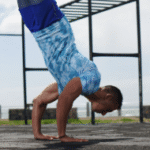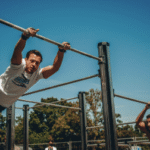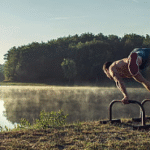The Role of Assessment in One-on-One Calisthenics Coaching
Let’s explore in detail the crucial role that assessment plays in effective and safe one on one calisthenics coaching within the United States. Understanding this process is key to appreciating the value of personalized training, especially in a discipline as nuanced as calisthenics.
Assessment is far more than just a formality or a quick chat at the beginning of your training journey. In high quality one on one calisthenics coaching, assessment is a fundamental, ongoing process that informs every aspect of your personalized program. It is the diagnostic tool that allows a coach to understand your unique starting point, tailor exercises effectively, ensure your safety, and track your progress accurately. It moves training from guesswork to a targeted strategy.
Why Assessment is Especially Vital for Calisthenics
While assessment is important in all fitness modalities, it takes on particular significance in calisthenics due to several factors:
First, Bodyweight Reliance. Progress hinges on your ability to control and manipulate your own bodyweight. Assessment helps determine your current relative strength, stability, and body awareness.
Second, Skill Complexity. Calisthenics skills like handstands, levers, and muscle ups have specific prerequisites involving strength, mobility, and coordination. Assessment identifies if you possess these prerequisites and pinpoints weaknesses hindering skill development.
Third, Joint Health. Many calisthenics movements place considerable stress on the wrists, elbows, and shoulders. Assessing joint mobility, stability, and any pre existing issues is crucial for selecting appropriate exercises and preventing injury.
Fourth, Precise Progressions. Unlike simply adding weight plates, calisthenics progression involves subtle changes in leverage, range of motion, or stability. Accurate assessment is needed to choose the exact exercise variation that provides the right challenge for you at any given time.
The Initial Assessment Phase: Laying the Foundation
Your coaching journey typically begins with a comprehensive initial assessment, often spanning the consultation and the first training session. This usually involves:
1 Detailed Consultation: Gathering subjective information is the first step. This includes a deep dive into your specific goals, motivations, past exercise experience, detailed injury and health history, lifestyle factors like sleep and stress, and your available training time and equipment.
2 Movement Screening: The coach will guide you through a series of movements designed to evaluate objective physical qualities. This often includes assessing your mobility and range of motion in key joints relevant to calisthenics (shoulders, hips, wrists, ankles, spine). It also involves evaluating your core stability, balance, and scapular (shoulder blade) control through specific tests or drills. Observing your form during fundamental bodyweight patterns like squats, lunges, hinges, pushes, and pulls helps identify any compensations, asymmetries, or technique flaws.
3 Baseline Testing: Depending on your level and goals, the coach may establish baseline performance on key calisthenics exercises. This could be measuring maximum push up repetitions, pull up or hang duration, plank hold time, squat depth, or assessing initial attempts at skill progressions like wall supported handstands. This data provides a concrete starting point for your program and for measuring future progress.
Ongoing Assessment: The Key to Adaptation and Progress
Assessment does not end after the first session; it is woven into the fabric of every workout. A good coach is constantly assessing:
1 Within Session Monitoring: They carefully observe your technique on every repetition of every exercise, providing real time feedback and correction. They gauge your perceived effort, look for signs of fatigue, and assess how well you are handling the prescribed loads or variations.
2 Readiness Checks: Coaches often start sessions by checking how you are feeling – any unusual soreness, fatigue levels, or feedback from the previous workout. This allows them to adjust the intensity or volume of the planned session if needed (autoregulation).
3 Progression Assessment: As you get stronger and more proficient, the coach assesses your readiness to move to the next, more challenging exercise variation or skill progression, ensuring the stimulus remains optimal for continued adaptation.
Periodic Re assessment: Tracking Progress Objectively
To track long term progress and refine the overall training plan, coaches typically conduct more formal re assessments periodically, perhaps every 4, 8, or 12 weeks. This might involve repeating some of the initial baseline tests or movement screens. Seeing objective improvements in strength, endurance, mobility, or skill proficiency is highly motivating for clients and provides valuable data for the coach to adjust future training phases.
How Assessment Drives Personalized Success
The power of one on one coaching lies in personalization, and assessment is the engine driving it. Thorough initial and ongoing assessment allows the coach to design a program that is truly tailored to you, select appropriate starting exercises and progressions, implement targeted drills to address your specific weak links (whether mobility, stability, or strength), track your progress in a meaningful way, and make informed adjustments to keep you moving forward safely and effectively.
What Clients Should Expect and Participate In
As a client, understand that the assessment process is for your benefit. Be prepared to answer questions about your health and history honestly and completely. Participate fully in movement screens, even if they seem basic. Provide clear feedback to your coach about how exercises feel and how your body is responding between sessions. View assessment not as a test to pass, but as a collaborative tool to optimize your training.
Conclusion
Comprehensive and continuous assessment is the cornerstone of high quality, effective, and safe one on one calisthenics coaching. It elevates training from generic routines to a truly personalized experience. By understanding your unique starting point, identifying strengths and weaknesses, monitoring progress, and adapting the plan accordingly, assessment ensures that every session is purposeful and maximally effective in helping you achieve your specific calisthenics goals while minimizing the risk of injury. It is arguably the most critical element that differentiates personalized coaching and leads to superior results.

The Role of Assessment in One-on-One Calisthenics Coaching
Route
Calisthenics Gym Houston Functional Bodyweight Training
Secondary phone: (346) 483-3195
Email: info@calisthenicsclubhouston.com
URL: https://calisthenicsclubhouston.com/
Monday 6:00 AM - 7:00 PM Tuesday 6:00 AM - 7:00 PM Wednesday 6:00 AM - 7:00 PM Thursday 6:00 AM - 7:00 PM Friday 12:00 PM - 6:30 PM Saturday 9:45 AM - 12:00 PM Sunday 3:00 PM - 5:00 PM





